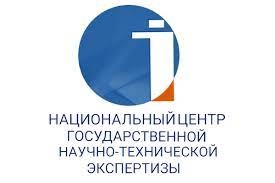ENGLISH AND RUSSIAN EDUCATIONAL PHRASEOLOGISMS
https://doi.org/10.55491/2411-6076-2024-3-51-59
Abstract
The purpose of our study is not only to analyze educational phraseologisms from a semantic and structural point of view, but also to determine the ratio of motivated and unmotivated phraseology. While doing our research we have used the following methods: literature review, descriptive method, analysis and synthesis methods. Results: we believe that motivated phraseologisms prevail over unmotivated phraseologisms in English and Russian. Having analyzed the 30 most frequently used phraseological units on the topic of “education”, we can confirm that the ratio of motivated phraseological units in both languages is significantly higher than unmotivated ones. Namely: in the English language, among 30 set expressions, there are 20 motivated phraseological units, which is 67% of the total, and 10 unmotivated phraseological units, which is 33%. As for the Russian language, the picture is the same: we have 20 motivated phraseological units, which is 67%, and 10 unmotivated ones, that is, 33%. In general, the percentage of motivated and unmotivated phraseological units in both languages is the same: 67% motivated set expressions and 33% unmotivated. The results obtained in the process of studying phraseological material can be used in compiling dictionaries, teaching aids for students studying Russian and English.
About the Authors
K. KoptleuovaKazakhstan
Kulpash Koptleuova - Candidate of Philological Sciences
Aktobe
A. Akkuzov
Kazakhstan
Abdyzhalil Akkuzov - Candidate of Philological Sciences
Shymkent
References
1. Arnold, I.V. (1981) Stilistika sovremennogo anglijskogo jazyka (Rasshifrovka stilistiki). Leningrad, 295 s. [Arnold, I.V. (1981) Stylistics of the modern English language (Decoding Stylistics). Leningrad, 295 p.] (in Russian)
2. Blagoeva, D., Jaskot, M. P., & Sosnowski, W. (2019) A lexicographical approach to the contrastive analysis of Bulgarian and Polish phraseology. Cognitive Studies | Études cognitives 2019 (19). https://doi.org/10.11649/cs.1923 (in English)
3. Collins, V.H. (1958) A Book of English Idioms with Explanations. London. (in English)
4. Cowie, A.P. (1998) Introduction. In Cowie A.P. (ed.) Phraseology: Theory, Analysis and Applications. Oxford. (in English)
5. Cowie, A.P. (2001) Phraseology: Theory, Analysis, and Applications. Oxford. (in English)
6. Gaatone, D. (1997) La locution: analyse interne et analyse globale. La locution entre langue et usages. P. 165-177. (in French)
7. Giegerich, H. J. (2004) Compound or phrase? English noun-plus-noun constructions and the stress criterion. English Language and Linguistics. P. 1-24. (in English)
8. Gläser, Rosemarie (1988) The Stylistic Potential of Phraseological Units in the Light of Genre Analysis. Phraseology. Ed. A.P.Cowie. Oxford: Clarendon Press. (in English)
9. Gross, G. (1996) Les expressions figées en français. Noms composés et autres locutions. Paris: Ophrys. 256 p. (in French)
10. Kunin, A.V. (2007) Anglo-russkij slovar' idiom. Moskva. 504 s. [Kunin А.V. (2007) English-Russian dictionary of idioms. Moscow. 504 p.] (in Russian)
11. Macmillan, English Dictionary for Advanced Learners (2003) London: Oxford. 1685 p. (in English)
12. Moon, R. (1998) Fixed expressions and idioms in English. Oxford: Clarendon Press. 352 p. (in English) Oxford Learner’s Dictionary of English Idioms (edited by Helen Warren) (2008) Oxford University Press. 343 p. (in English)
13. Sag, I.A., Baldwin, T., Bond, F., Copestake, A. & Flickinger, D. (2002) Multiword Expressions: A Pain in the Neck for NLP. In Proceedings of the Third International Conference on Intelligent Text Processing and Computational Linguistics (CICLING 2002). Mexico City. P. 1-15. (in English)
14. Sinclair, J. (1987) Looking Up. An account of the COBUILD Project in lexical computing. London: Collins ELT. 192 p. (in English)
15. Vinogradov, V.V. (1986) Ob osnovnyh tipah frazeologicheskih edinic v russkom jazyke; Vinogradov V.V. Leksikologija i leksikografija: izbrannye trudy. Moskva: Nauka. 161 s. [Vinogradov, V.V. (1986) On the main types of phraseological units in the Russian language; Vinogradov V.V. Lexicology and lexicography: Selected works. Moscow: Science. 161 p.] (in Russian)
Review
For citations:
Koptleuova K., Akkuzov A. ENGLISH AND RUSSIAN EDUCATIONAL PHRASEOLOGISMS. Tiltanym. 2024;(3):51-59. https://doi.org/10.55491/2411-6076-2024-3-51-59
JATS XML

















